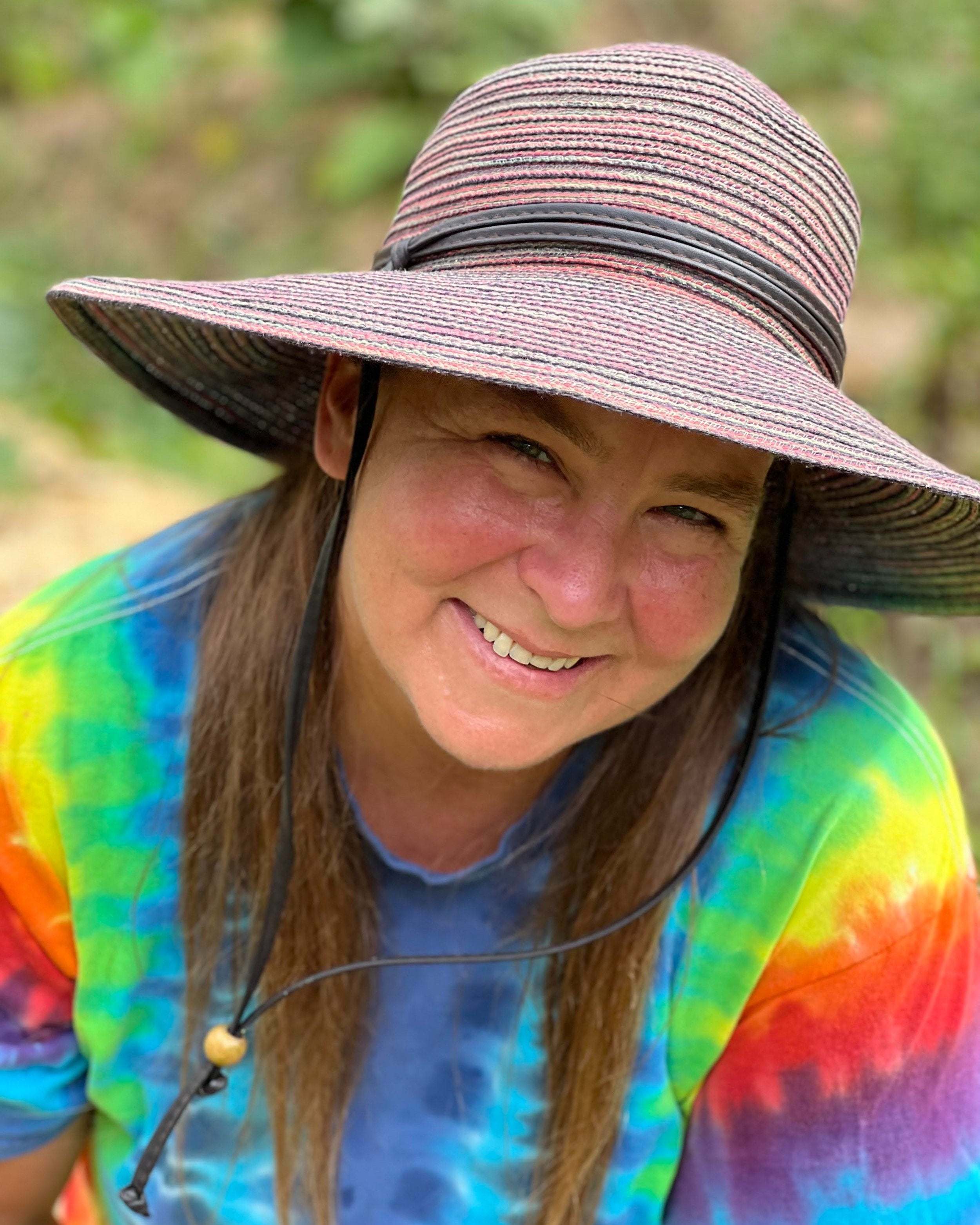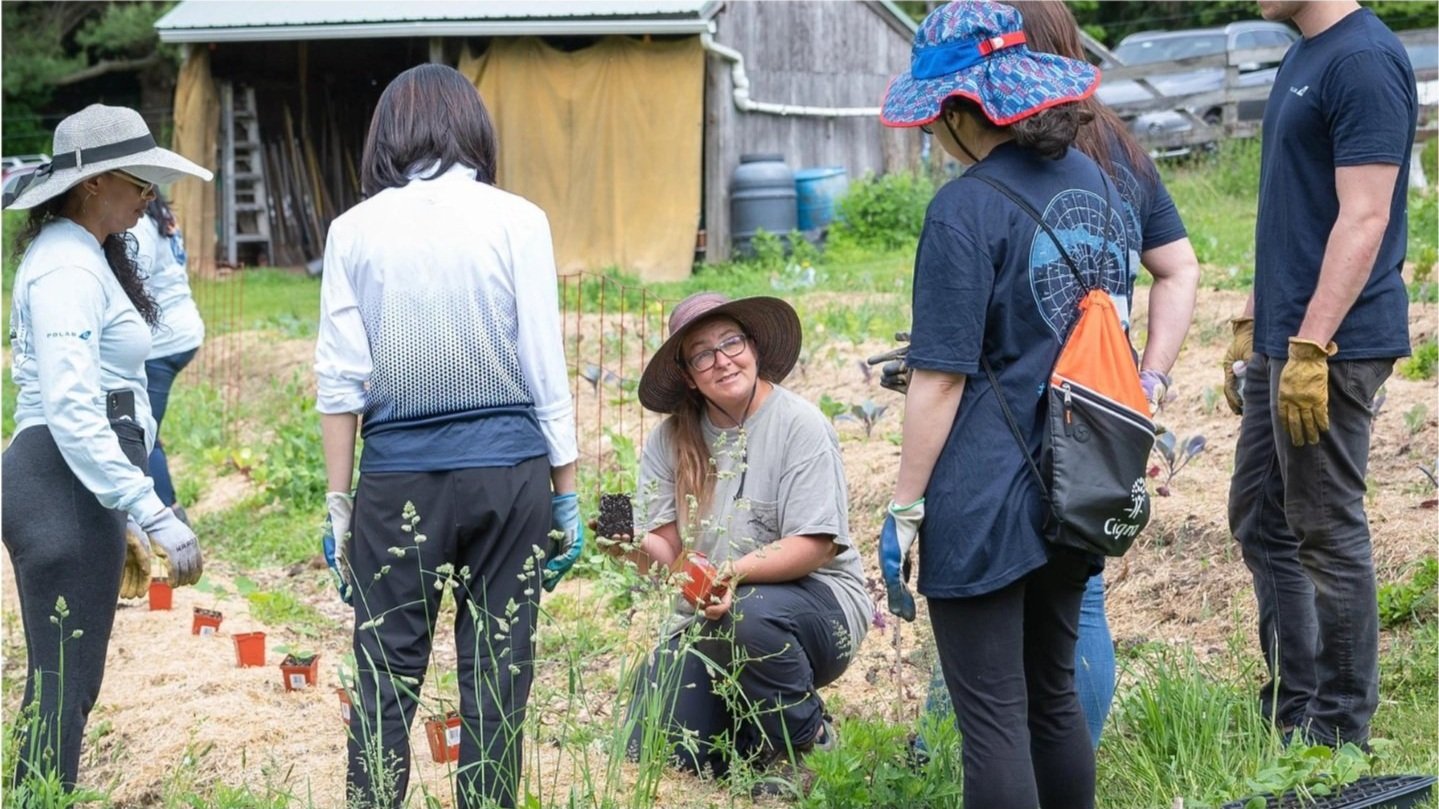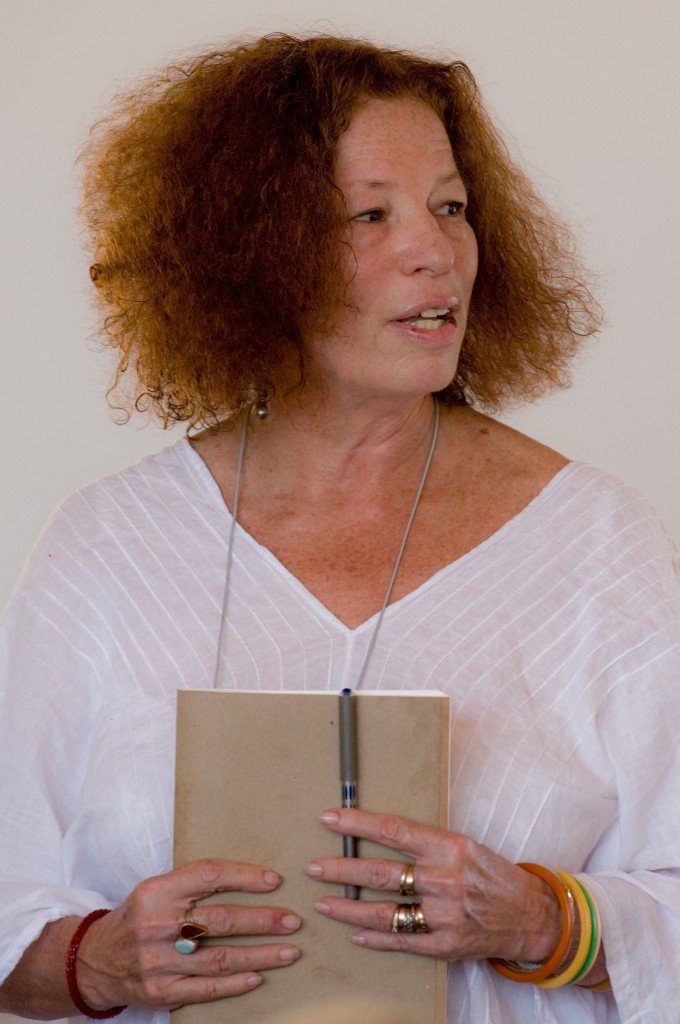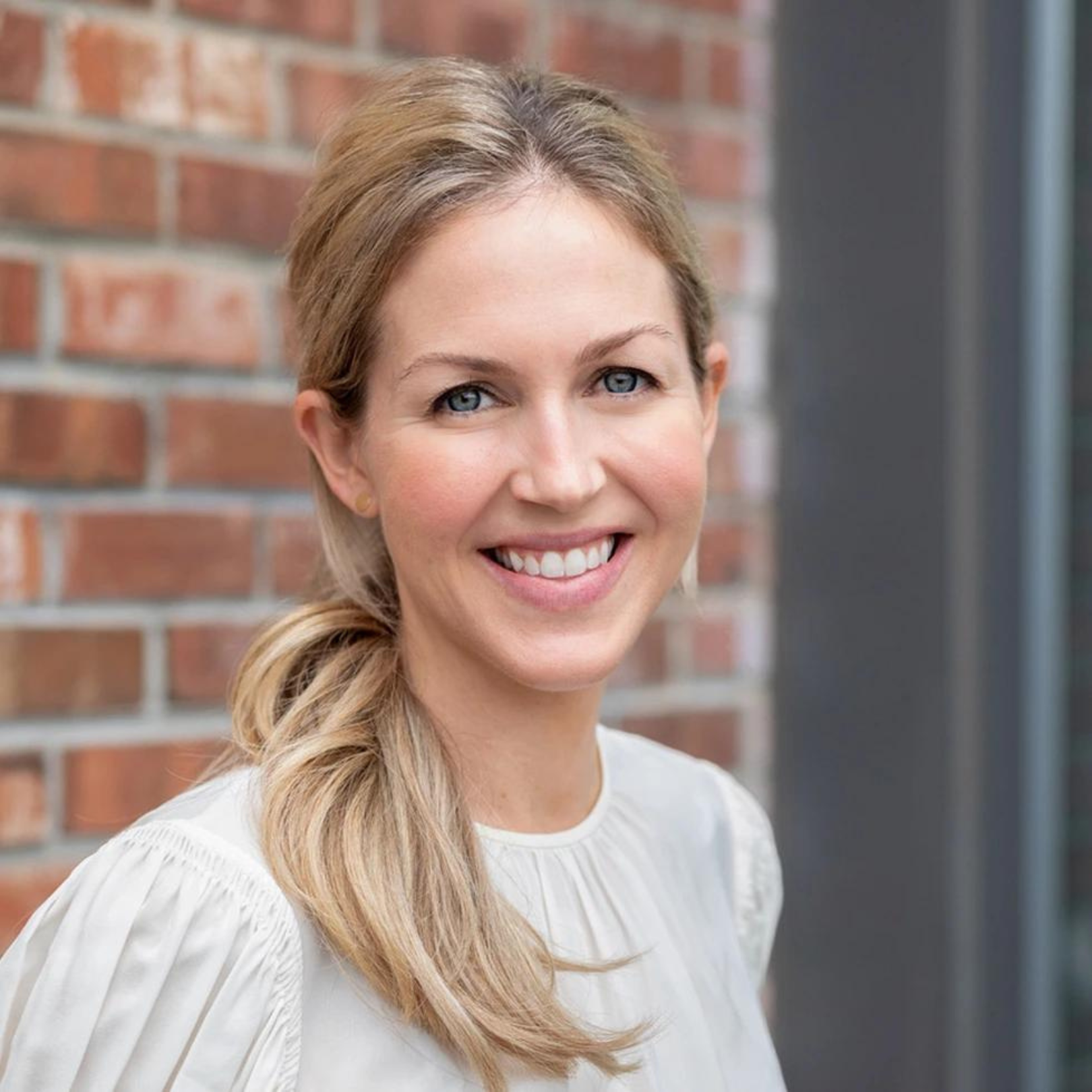Digging In with Allison Turcan
In 2015, Allison Turcan launched D.I.G. Farm, a nonprofit teaching farm in North Salem, New York with a mission of reconnecting communities to the natural good of farming. She had just spent a year WWOOFing in France and found herself awestruck by the country’s food system and farming culture. “I came back and thought, ‘How am I going to get people to understand what I saw over there?’ And that's how it got started,” she explains. “I really didn't have any professional agricultural experience, just a year of hands-on learning.”
D.I.G. Farm, which stands for Dealing in Good, focuses on regeneration through growing vegetables and fruits. Volunteers can sign up to work and learn on the farm on Tuesdays, Wednesdays, Thursdays, and Saturday—and then take fresh, organic produce home at the end of the session. Allison also offers classes on gardening, seasonal cooking, foraging, herbalism, and more.
One of D.I.G. Farm’s most impressive initiatives is the Westchester Local Food Project, which is working to create a more sustainable and equitable food system through school gardening programs throughout the area. It’s a thoughtful way to both educate children and positively impact the community. Here, Allison shares more about D.I.G Farm, the Westchester Local Food Project, and the importance of all her work.

Mast Journal: Where is D.I.G. Farm located?
Allison Turcan: We're located in North Salem, New York. I started the nonprofit without any farm and I was coincidentally connected with Scott O'Rourke, who was starting Deep Roots Farm at the same time. I started doing programming with them here on this farm, bringing volunteers and kids and working the farmer's market with them. And then, after two seasons, they went on to bigger property and that left this property to become our official headquarters.
It’s now the property of Dick Button, the Olympic figure skater. It is a really good situation for us. He’s the landowner, supporting our vision and our operation. He allows us to exist here and not just be a farm, but also to have people, the community and different groups and kids and volunteers, coming in and out of the property.
MJ: That’s so generous! What programming does D.I.G. Farm offer now?
AT: We have volunteer days here on the farm Tuesday, Wednesday, Thursday, and Saturday, where volunteers can sign up and they can come and help and learn on the farm, and then they get to take home some of the produce. We have a whole series of classes about cooking seasonally, different cooking techniques, easy ways to utilize fresh produce from your garden, and how to preserve it for later. We have a whole series of classes about gardening. And then we have a whole series about foraging wild food and herbalism.
MJ: That’s awesome.
AT: Yep. We also do programs with special needs groups. We do work with women who’ve recently been released from incarceration, as well as incarcerated women.
MJ: And what is the Westchester Local Food Project? How is it connected to D.I.G. Farm?
AT: Everything we've been doing with the farm has been going well. We're very lucky that we have really nice groups of volunteers, so we decided to expand a little further into the community. We started the Westchester Local Food Project, which is an initiative of D.I.G. Farm. Instead of just being on one farm, we're talking about how to localize food within the community. We connected with several schools and we step in during the spring to help the schools get up and going with seeds, seedlings, prepping out their gardens, and making a garden plan so that students can plant up the gardens.
And then, over the summertime, we go into the school gardens with volunteer managers and set up the same volunteer opportunities we have here at D.I.G. Farm. People can come in, they can learn, they can take home some produce, and then the rest of that produce gets donated to food banks like the Mount Kisco Interfaith Food Pantry and the Community Center of Northern Westchester.
We also expanded down into Mount Vernon, where we started a community garden at the First Presbyterian Church and we donate the food from there. It’s the same thing, where volunteers can take some home, but all of that produce is then pooled. Some of it goes to the kitchen in Mount Vernon at the church where they prepare meals for the homeless shelter. Soon, we will be prepping meals at the Bedford Presbyterian.
MJ: Oh wow. That’s such impactful work!
AT: We love it. A lot of schools have gardens, but there's usually some sort of misfire there. Maybe nobody in charge really knows how to garden, so we provide support there. And then over the summer, kids are away and nobody's really looking after the gardens. We step in to help so that when the kids come back in September, they have a fully-functioning garden. Then, they have that opportunity to continue learning. And that food, from those gardens that have become productive, is harvested weekly. We put that harvest all together and it’s consumed as fresh produce or made into meals for the community in need.
MJ: That's perfect. It works from all the angles.
AT: It works from all the angles. And it gives us the opportunity to teach the kitchen piece. Sometimes there's waste at the food bank level because people get fresh produce and they don't want to cook, they don't know how to cook, or they have no time to cook. And so creating simple, healthy meals gives us the opportunity to teach people who are volunteering in the kitchens how to prepare those meals. And it provides a meal, as opposed to just fresh produce, to people who may not want to cook.

Photography courtesy of Westchester Local Food Project
MJ: Totally! That’s really smart. Do you have a team that runs the Westchester Local Food Project with you?
AT: Westchester Local Food Project is a small team of educators and garden managers, and everybody works together with super support from Mey Marple. We have recently just announced that Westchester Local Food Project will have an additional garden at a beautiful estate in Bedford Hills. It will be a similar situation to D.I.G. Farm with this landowner. We will be inviting the community onto that property for classes and education and volunteering opportunities. But everything that we do is powered by volunteers. So it's really grassroots.
MJ: Very cool. Do you have a team at D.I.G. Farm, too?
AT: It's me and then my buddy, farmer Deb Taft of Mobius Fields, who are here to be with volunteers on the four days that we have. She's here Tuesdays and Thursdays. I'm here Wednesdays and Fridays. On Tuesdays and Thursdays, I run the food bank garden over at the Westchester Land Trust.
MJ: You do so much! And you also have a podcast?
AT: Yes. We have a podcast that we've been doing now for five years called Getting Dirty and it's available anywhere you listen to podcasts. It's basically about how to grow vegetables, garden tips, but then also our story of how we're connecting people to the community and how you can get involved with your local food system and all of that.
MJ: What is the format?
AT: We usually have a guest that is related to agriculture, whether it's a volunteer or another farmer. We are very lucky every year to go to Farm Aid, which we will be attending again this year, so we speak to a lot of different farmers on the national level and get a picture of agriculture across the country. We’re telling their stories and trying to empower people to grow food.
MJ: And what is your favorite part of your many jobs?
AT: I think that you have to love it because if not, it would probably drive you crazy. I love both the aspect of growing food itself, the agriculture piece, but I really, really love the connection with people who don't necessarily get these experiences all the time, who are not outside all the time, who have never tasted a tomato off the vine. And I love working with kids—they're so into it. So I love the connections with people and introducing them to agriculture and growing and gardening, all the outside nature stuff. But I really, really secretly also very much love just being in the dirt and planting and working with the land.
MJ: It sounds like so much fun! How much time do you spend fundraising? Do the organizations require a lot of capital?
AT: As we're building programs, we're probably going to be putting a little more of an emphasis on grants and things like that. But we run programs that become kind of self-sustaining, like the reentry programming that we do or working with the food bank gardens. But we are always gladly accepting donations. We do the Mount Kisco Farmers Market on Sundays, which generates a little bit of revenue for us, but we’re always looking for donations and will probably be putting a much bigger emphasis on grant writing for the continued expansion of programs, not only at D.I.G. Farm, but also at our new place in Bedford Hills for the Westchester Local Food Project and supporting the other gardens.
MJ: Money never hurts! Is there any produce you’re particularly excited about this season?
AT: We have really picked up our game and expanded our winter squash and melon areas. So we should be, in a month or two, inundated with lots of watermelon and cantaloupe and honeydew and winter squash of all varieties. So that's going to be fun. We had a bumper crop blueberry season this year, so that was fun.
MJ: Are you a big cook? Do you cook with the produce that you grow?
AT: Absolutely. Cooking was part of my original passion for growing. My earliest memories include going out into my grandmother's garden and getting stuff and then going into the kitchen with her and using that for the meal we ate for dinner. So yes, I love to cook and I love to use fresh produce, so it goes hand-in-hand.
MJ: What will you make with the winter squash and melon?
AT: Let's see. We always do a lot of soups with winter squash, like butternut soup and pumpkin soup. Melons are great for making sorbets and ice creams.
MJ: Yum!
More from The Journal

A Poem a Day with Esther Cohen
In conversation with poet (and neighbor) Esther Cohen. She shares her road to writing, her love of New York, and her undivided care for all of us.
Read more
Elly Truesdell is the co-founder and managing partner of New Fare Partners. She shares her food focused journey to the world of venture capital and explains how New Fare Partners is different from ...
Read more